Azerbaijan country profile
- Published
This page is no longer being updated. It was last updated on 13 February 2024

Oil-rich Azerbaijan has redefined itself over the past two decades from a struggling newly independent state to a major regional energy player.
Deals with international energy producers have allowed the country to use its energy revenues to create a government-run fund involved in international projects.
It has also used its resources to rebuild its army, which is seen as a government priority as the country grapples with the breakaway territory of Nagorno-Karabakh.
Despite its wealth and increased influence in the wider region, poverty and corruption continue to overshadow the country's development.
The formal political opposition has been weakened by years of persecution and Baku has carried out an extensive crackdown on civil liberties in recent years, says Freedom House.
Read more country profiles, external - Profiles by BBC Monitoring, external
REPUBLIC OF AZERBAIJAN: FACTS
Capital: Baku
Area: 86,600 sq km
Population: 10.3 million
Language: Azerbaijani, also Lezgian, Talysh, Avar, Russian, Tat
Life expectancy: 70 years (men) 75 years (women)
LEADERS
President: Ilham Aliyev
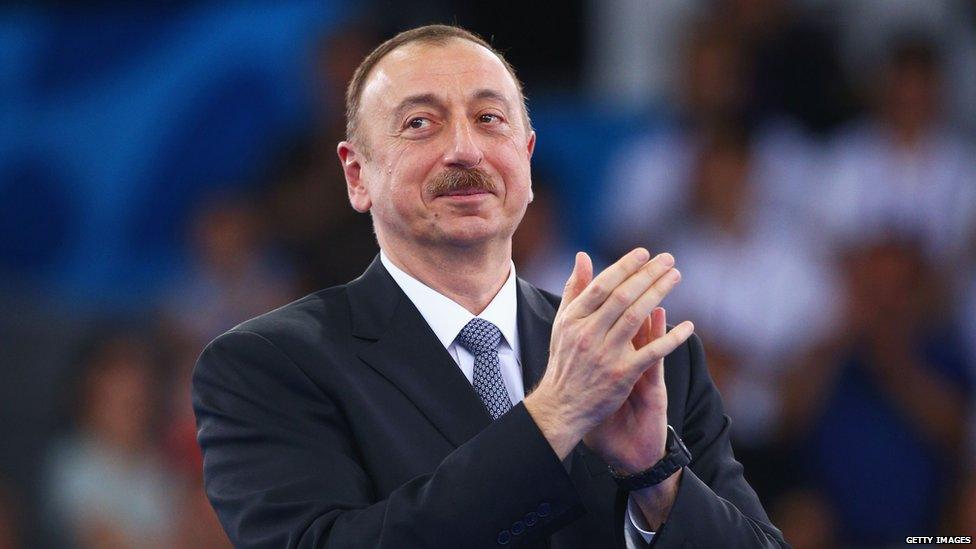
Ilham Aliyev took over as president from his father Heydar in 2003. He won a fifth consecutive term in February 2024, with over 92% of the vote. However, international observers say he had no meaningful challenger.
Artur Gerasymov, of the Organisation for Security and Cooperation in Europe (OSCE) observer mission said that the election was "devoid of genuine pluralism".
The main rival parties had boycotted the election, with one opposition leader calling it an "imitation of democracy".
The election had been planned for 2025, but President Aliyev announced the early poll after his popularity surged in the wake of Azerbaijan's successful 2023 military campaign in the disputed territory of Nagorno-Karabakh.
Azerbaijan's lightning offensive brought an end to three decades of ethnic Armenian rule in the region - which is recognised internationally as Azerbaijani territory. Most of its 120,000 ethnic Armenian residents fled to neighbouring Armenia.
Mr Aliyev described the Karabakh victory as "an epochal event unparalleled in Azerbaijan's history" and that the election would mark the "beginning of a new era" as it was being held on all of its territory for the first time.
Ali Kerimali, the leader of Popular Front, one of Azerbaijan's main opposition parties, said there were "no conditions in the country for the conduct of free and fair elections".
"Freedom of assembly is restricted, media are under government pressure, and political dissent is being suppressed," he added.
Prime minister: Ali Asadov
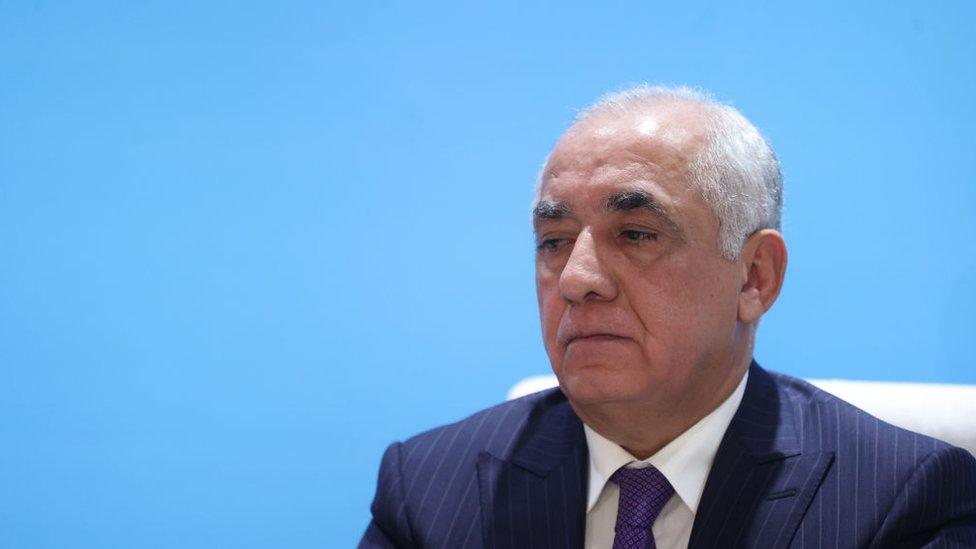
Asadov is considered a close ally of President Aliyev. He was elected prime minister in October 2019 following he resignation of Novruz Mammadov.
MEDIA
Dissenting voices are practically absent from mainstream media and critical journalists risk arrest and imprisonment.
TV is the most popular medium. All Azerbaijan-based channels toe the government line.
Social media are used as platforms for free expression and activism. Facebook is the leading social network.
TIMELINE
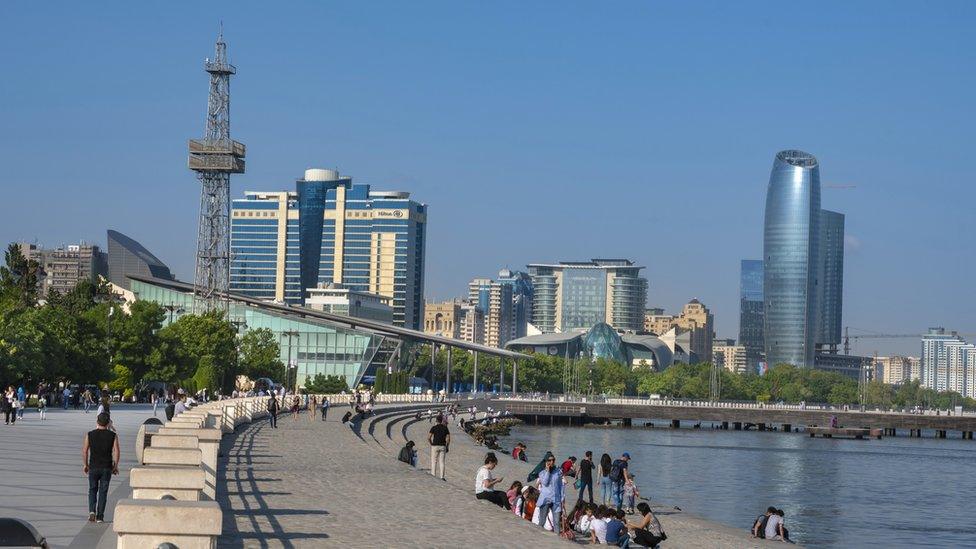
Baku is Azerbaijan's biggest city as well as its capital
Some key dates in Azerbaijan's history:
1828 - Turkmanchay treaty between Russia, Persia divides Azerbaijan. Territory of present-day Azerbaijan becomes part of Russian empire while southern Azerbaijan is part of Persia.
1848-49 - World's first oil well is drilled south of Baku.
1918 - Independent Azerbaijani Republic declared but the country becomes a Soviet Socialist Republic two years later after the Red Army invades.
1988 - Nagorno-Karabakh region seeks to become part of Armenia. Ethnic Azeris begin to leave Karabakh and Armenia and ethnic Armenians leave Azerbaijan.
1991 - Azerbaijani parliament votes to restore independence.
1992 - Ethnic strife between Armenia and Azerbaijan leads to a full blown war.
1994 - Armenia, Azerbaijan and Nagorno-Karabakh sign a ceasefire accord. Ethnic Armenians remain in control of Karabakh and a swathe of Azerbaijani territory around it.
Azerbaijan signs what it calls the "contract of the century" with a consortium of international oil companies for the exploration and exploitation of three offshore oil fields.
2001 - Azerbaijan, Georgia and Turkey reach agreement on oil and gas pipelines linking Caspian fields with Turkey.
Azerbaijan officially shifts to the Latin alphabet for the Azeri language, in the fourth alphabet change in a century.
2002 - Construction work starts on multi-billion-dollar pipeline to carry Caspian oil from Azerbaijan to Turkey via Georgia.
2006 - Baku-Tbilisi-Ceyhan pipeline formally opened at ceremony in Turkey after Caspian oil starts flowing along it.

2020 - Azerbaijan scores a major military success when it recaptures territory in and around Nagorno-Karabakh. Some 3,000 Azerbaijani soldiers and 4,000 Armenian soldiers are killed in the conflict.
Russian peacekeepers are deployed to monitor a new Moscow-brokered ceasefire, and also to ensure safe passage through the region of Lachin - the so-called "Lachin corridor" separating Nagorno-Karabakh from Armenia.
2022 - Fighting breaks out between Armenian and Azerbaijani troops along the Armenia-Azerbaijan border, about 50 soldiers on each side are killed in the clashes.
2023 - Following a months-long Azerbaijani blockade of the Lachin corridor, Azerbaijani forces rapidly overwhelm Nagorno-Karabakh troops and seize the region after 24 hours of fighting. The majority of ethnic Armenians flee.
2024 - Nagorno-Karabakh is formally dissolved.
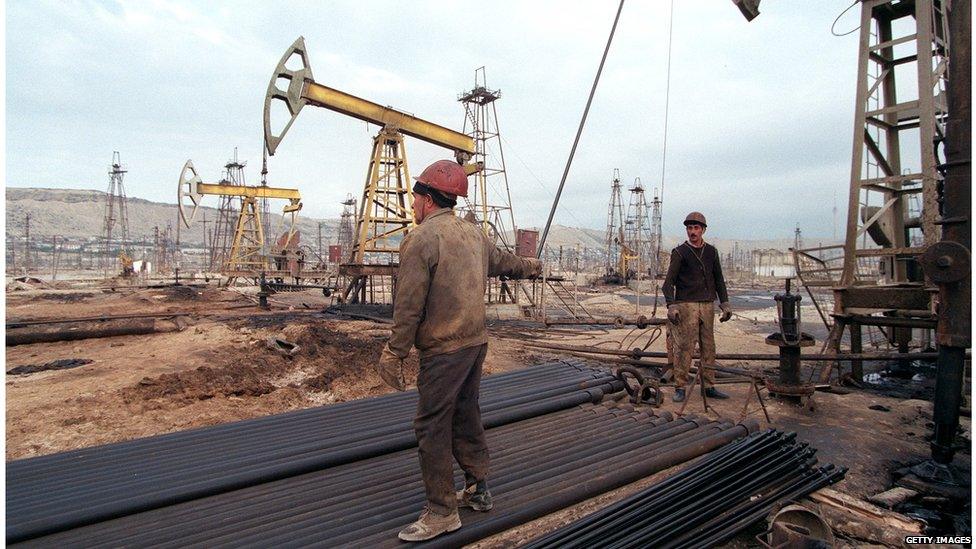
Azerbaijan is home to the world's first oil well, dug in the mid-1800s
Related topics
- Published25 March 2024

- Published31 December 2024
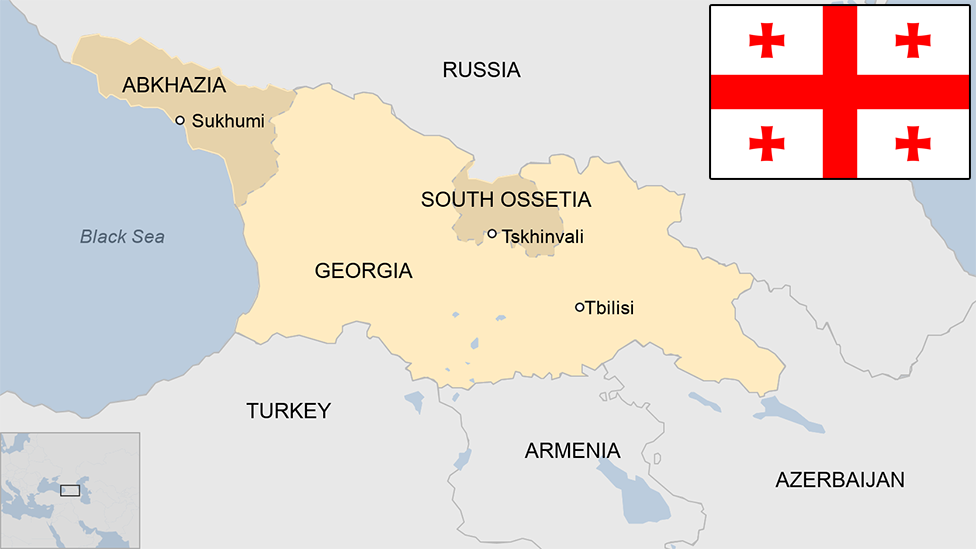
- Published30 January 2024
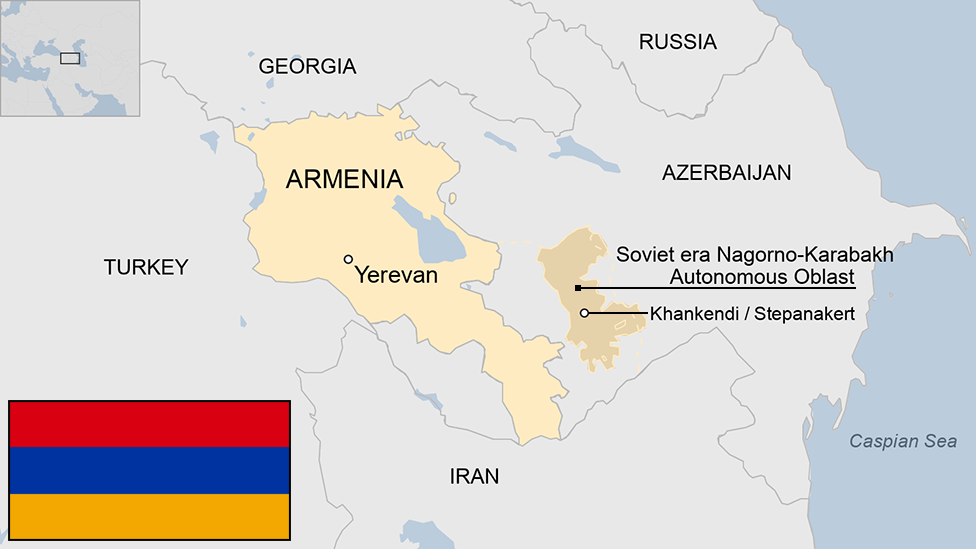
- Published14 October 2024

- Published22 August 2023
